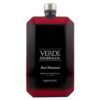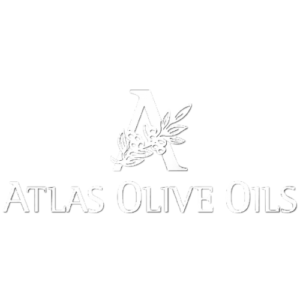
How is High-Polyphenol Olive Oil used in the Nemechek Protocol for Autism?
Behind every bottle of extra virgin olive oil, there’s often a story. Sometimes it’s chosen for health reasons, sometimes for the pursuit of premium ingredients, or even because of family tradition. One of the deliveries made through Giving Oil, our UAE-based online store specializing in extra virgin olive oils, came with a particularly touching reason: a mother had purchased a high-polyphenol extra virgin olive oil for her child with autism.
She shared that in her son’s daily routine, it was essential to include a high-polyphenol extra virgin olive oil, as recommended in the Nemechek Protocol. This nutritional approach, developed by Dr. Patrick M. Nemechek, is based on the premise that optimal digestive function can positively influence certain symptoms associated with autism spectrum disorder (ASD). The protocol includes high-polyphenol olive oil as a core part of its nutritional intervention.
That conversation inspired us to research further and share this valuable information with families and individuals seeking natural, conscious approaches to nutrition — especially in the context of supporting those with ASD.
What Is a high-polyphenol extra virgin olive oil?
Extra virgin olive oil (EVOO) is widely recognized as one of the healthiest fats in the world. But not all EVOOs are created equal.
Some contain significantly higher levels of polyphenols — natural compounds known for their antioxidant power. These are referred to as “high-polyphenol olive oils”, and they are noted for their bold flavor, greater stability, and longer shelf life. They are highly sought after by those embracing natural, unprocessed lifestyles with a focus on well-being. Read more about this!
At Giving Oil, we have a dedicated category that showcases exclusively our high-polyphenol extra virgin olive oils. Carefully selected for their quality, origin, and nutritional value, these oils meet the specific needs of health-conscious consumers in the UAE and beyond.
What are polyphenols exactly?
Polyphenols are natural antioxidants found in plants. In olive oil, they are responsible for many of its health-promoting effects. The most well-researched ones include:
- Oleocanthal – known for its antioxidant, antimicrobial, and neuroprotective properties.
- Oleuropein – praised for its anti-inflammatory effects and immune system support.
- Hydroxytyrosol – one of the most potent antioxidants found in nature.
These compounds not only support cardiovascular and digestive health, but have also been studied for their role in brain function, oxidative stress reduction, and immune response.
What makes an olive oil high in polyphenols?
A naturally high-polyphenol EVOO must meet several criteria:
- Made from green olives (early harvest), not fully ripened ones
- Cold-pressed to preserve its full range of nutrients
- Sourced from naturally rich varieties like Picual, Coratina, Arauco, and others
- 100% extra virgin, with no blending or refining
A common sensory indicator of polyphenol richness is the peppery sting in the throat when swallowing. This sensation is due to the presence of oleocanthal. The more pronounced the sting, the higher the oil’s polyphenol content.
How is olive oil eelated to the Nemechek Protocol?
The Nemechek Protocol is a complementary approach created by American physician Dr. Patrick M. Nemechek, an internal medicine specialist and expert in the autonomic nervous system. His protocol has gained traction among families of children diagnosed with ASD and other developmental challenges.
Rather than a conventional medical treatment, the protocol is a natural intervention aimed at restoring neurological and digestive balance. It includes three primary components:
- High-polyphenol extra virgin olive oil, valued for its antioxidant and neuroprotective qualities
- Omega-3 fatty acids, especially DHA
- Inulin, a prebiotic that supports gut microbiota
The goal is to minimize oxidative stress, promote gut health, and create a more stable environment for the nervous system to function. In his book The Nemechek Protocol for Autism and Developmental Disorders: A How-To Guide for Restoring Neurological Function, Dr. Nemechek explains how to apply the protocol, including dosage and adjustments tailored to age and lifestyle.
He also provides personalized treatment plans both in person at his clinic in Buckeye, Arizona, and virtually through video call platforms such as Zoom or similar.

A note on responsibility and caution
While extra virgin olive oil — especially high in polyphenols — is celebrated for its health benefits, it is crucial to approach its use responsibly. Its inclusion in wellness routines has been supported by research, which is why many families now integrate it into their daily diets as a conscious nutritional choice.
However, this oil does not replace medical treatments, psychological therapies, or behavioral interventions. It can be part of a complementary nutritional plan within a healthy lifestyle, but should always be used based on trusted information and personal responsibility.
Before changing your diet or starting any alternative protocols, it’s essential to evaluate available scientific evidence and consult healthcare professionals as needed.
A heartfelt thank you!
We would like to extend our sincere gratitude to the mother who generously shared her story. Her testimony, rooted in love, helped us understand the deeper motivations behind many of our customers’ conscious purchases — especially when it comes to the well-being of a child.
Thanks to her — and to many other families who have written to us about their dietary choices — we continue to learn and reaffirm our commitment to providing a product that not only nourishes but also supports meaningful life decisions.
At Giving Oil, we are inspired by these stories and remain dedicated to delivering quality with purpose — offering natural tools that help you care for those you love most.


































Add comment